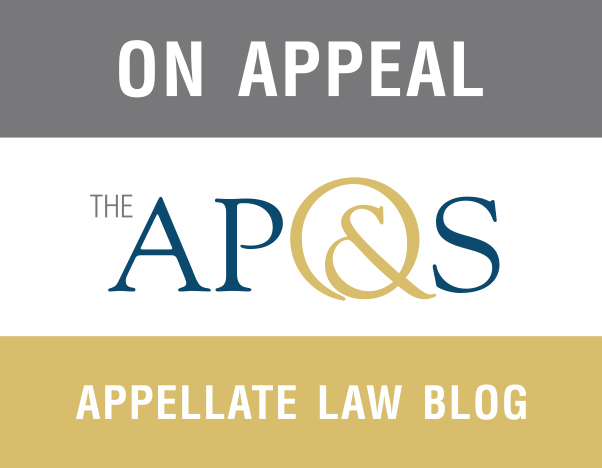The Rhode Island Supreme Court “ain’t afraid of no ghost.” Ray Parker Jr., Ghostbusters (1984). In a long-anticipated, unanimous decision, the Rhode Island Supreme Court held yesterday that an attorney may not ghostwrite or otherwise assist a pro se litigant with the preparation of pleadings, motions, or other written submissions unless the attorney signs the document and discloses his or her identity and the extent of his or her assistance. See FIA Card Services, N.A. v. Pichette, No. 2012-272-Appeal (R.I. 2015).
The permissibility of legal ghostwriting – the drafting of a document by an undisclosed lawyer on behalf of a client and the provision of that document to a client who represents him or herself before the court as a pro se litigant – has been the subject of significant national debate. While many federal courts prohibit ghostwriting, there has been a growing acceptance of ghostwriting by state courts, at least until now.
Legal ghostwriting is regarded as one form of limited-scope representation or the unbundling of legal services where attorneys perform specific, limited tasks as opposed to the traditional handling of all aspects of a matter. Rule 1.2(c) of the Rhode Island Supreme Court Rules of Professional Conduct permits a lawyer to limit the scope of his or her representation so long as the limitation is reasonable and the client gives informed consent.
Those in favor of ghostwriting advocate that permitting attorneys to provide limited-scope representation such as ghostwriting enables pro se litigants to gain greater access to justice. For example, permitting pro se litigants to purchase only an attorney’s brief writing services can significantly reduce the pro se litigant’s legal expenses. Correspondingly, permitting ghostwriting encourages attorneys to accept pro bono matters knowing that their involvement will be limited to brief writing.
The arguments against ghostwriting are multifold. First, pro se litigants may unfairly benefit from the filing of a pro se pleading because courts often afford greater leniency in construing pro se pleadings. Second, there is a risk that pro se litigants will be unable to explain complex ghostwritten counterclaims or defenses without the assistance of the attorney who has drafted the counterclaims or defenses. Third, ghostwriters escape the rigorous requirements imposed on attorneys by the Rules of Civil Procedure and the Rules of Professional Conduct and may not be held accountable for violations of those rules. For example, while Rule 11 of the Rhode Island Rules of Civil Procedure imposes an obligation on counsel to sign pleadings, which signature constitutes a certification that the attorney has read the pleading and that to the best of his or her knowledge, information, and belief, formed after reasonable inquiry it is well grounded in fact and is warranted by existing law, and that it is not interposed for any improper purpose, ghostwriters evade that requirement and the corresponding sanctions for a violation of that rule. Fourth, ghostwriting inhibits communication between adverse parties because opposing counsel may not communicate with an individual who they know is represented by counsel.
After consideration of these arguments and positions taken by the Rhode Island Attorney General, the Rhode Island Bar Association and certain advisory board members of the Pro Bono Collaborative, all of whom filed amici briefs, the Rhode Island Supreme Court, pursuant to its general supervisory authority, declared the following policy for Rhode Island courts:
1. An attorney may provide legal assistance to litigants appearing pro se before courts, provided the scope of the attorney’s representation is reasonable and the litigant gives informed consent in a writing that sets forth the nature and extent of the attorney-client relationship.
2. An attorney may not assist a pro se litigant with the preparation of pleadings, motions, or other written submissions unless the attorneys signs the document and discloses thereon his or her identity and the nature and extent of the assistance that he or she is providing. The attorney may indicate on the document that his or her signature does not constitute an entry of appearance.
In announcing this policy, the Supreme Court recognized that this unchartered territory has the potential to implicate a variety of concerns for the bench, bar and public. Accordingly, through a corresponding Order, it invited comment on the subject of limited-scope representation in general and the practice of ghostwriting in particular. Comments should be made through a memorandum submitted to the Clerk of the Supreme Court by January 15, 2016.




